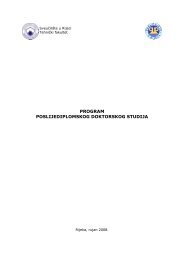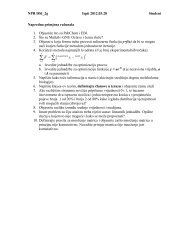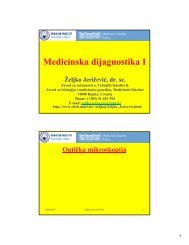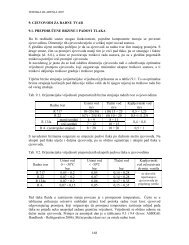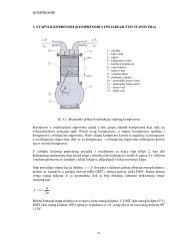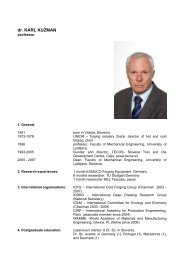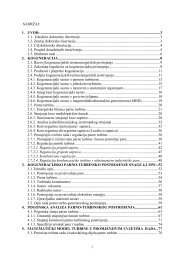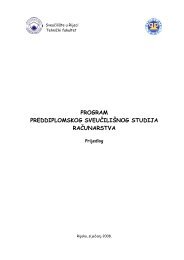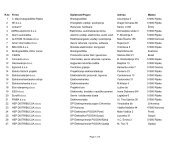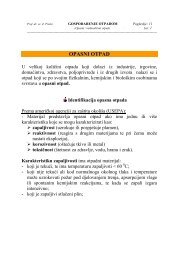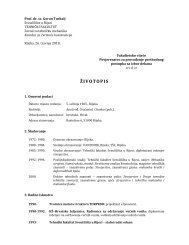universityâenterprise cooperation
universityâenterprise cooperation
universityâenterprise cooperation
Create successful ePaper yourself
Turn your PDF publications into a flip-book with our unique Google optimized e-Paper software.
Table 3.1<br />
Year Title Description and output<br />
28<br />
2001 The concrete future objectives of<br />
education systems [80].<br />
2002 Investing efficiently in education<br />
and training: an imperative for<br />
Europe [81].<br />
2003 The role of the universities in the<br />
Europe of knowledge [41].<br />
2005 Mobilising the brainpower:<br />
enabling universities to make<br />
their full contribution to the<br />
Lisbon strategy [55].<br />
2005 Modernizing education and<br />
training: a vital contribution to<br />
prosperity and social cohesion in<br />
Europe [56].<br />
2007 Improving knowledge transfer<br />
between research institutions and<br />
industry across Europe: embracing<br />
open innovation [42].<br />
2009 Improving knowledge transfer<br />
between research institutions and<br />
industry across Europe: embracing<br />
open innovation [2].<br />
The document recognizes the need to open up education<br />
systems to the influences of other parts of society: both<br />
those that are close to schools (parents, local institutions,<br />
and local businesses) and those that are more distant. It<br />
argues that local businesses are a resource in providing<br />
a perspective on the future needs for skills, as well as a<br />
potential introduction for learners into the way in which<br />
the business world works.<br />
The document call for an in-depth revision of curricula to<br />
ensure the highest level of academic content but also to<br />
respond to the changing needs of the labour market. This can<br />
be helped by various types of public-private partnerships, to<br />
mobilise additional human and financial resources.<br />
The communication underlines the need for global<br />
competitiveness demands that knowledge flows from<br />
universities into business and society. Cooperation between<br />
universities and industry must be intensified and geared<br />
more effectively towards innovation, start-up of new<br />
companies and transfer and dissemination of knowledge.<br />
The communication stresses the need to increase and diversify<br />
university funding sources, as one of the most urgent priorities.<br />
Much stronger and lasting expansion has been possible in<br />
competitor countries thanks to a greater diversity of funding<br />
sources, with much higher contributions from industry and<br />
households. Private investment in higher education in the<br />
EU amounts to less than 0.2% of GDP, much less then in the<br />
US and in Japan. The Commission estimates that an increase<br />
up to 2% of GDP is the minimum needed for knowledgeintensive<br />
economies.<br />
The communication stresses again that strengthening<br />
collaboration between higher education and industry is<br />
recognised by most countries as a basic requirement for<br />
innovation and increased competitiveness, but that too few<br />
European countries have a comprehensive approach to this issue.<br />
The publication stresses advantages arising from <strong>cooperation</strong><br />
between university and industry, as mean to enhance<br />
knowledge transfer from research to production.<br />
Three actors are in particular mentioned:<br />
• Research groups: they need to focus in particular in<br />
innovation and in academic excellence;<br />
• Public administration: has to facilitate researchers mobility;<br />
• Industry: larger investments are needed in research and<br />
development sectors.<br />
For a real change in the <strong>cooperation</strong> activities between<br />
university and enterprise it is necessary to radically<br />
modernize university.<br />
The document underlines main points to be addressed<br />
for a real conversion of university politics in order to<br />
act as a protagonist in the next year’s society. (See also<br />
previous paragraph 3.2).



